🧵 Capturing the Monkey 🐒
On 26th Feb the resolve of a nation was tested, The world watched, holding its breath, as events unfolded. Two nuclear armed countries stood at a flashpoint, India had tried to target a supposed terrorist training camp at the crest of a hill on the border of AJK and KPK.
(1/15)

On 26th Feb the resolve of a nation was tested, The world watched, holding its breath, as events unfolded. Two nuclear armed countries stood at a flashpoint, India had tried to target a supposed terrorist training camp at the crest of a hill on the border of AJK and KPK.
(1/15)


During the night Pakistan air force's air defence command detected multiple bogeys approaching at multiple sectors.
Aircraft on patrol were vectored, majority of the bogeys turned back.
The package up north managed to lob their munitions hastily.
But the bombs had missed their supposed target a children's seminary hitting uninhabited areas near Jabba, Balakot, causing no casualties.
(2/15)
Aircraft on patrol were vectored, majority of the bogeys turned back.
The package up north managed to lob their munitions hastily.
But the bombs had missed their supposed target a children's seminary hitting uninhabited areas near Jabba, Balakot, causing no casualties.
(2/15)

This strike package consisted of Mirage 2000 aircraft armed with Israeli spice 2000 Stand off precision guided weapons; these weapons were both optically guided and could be programmed to hit GPS coordinates.
(3/15)

(3/15)
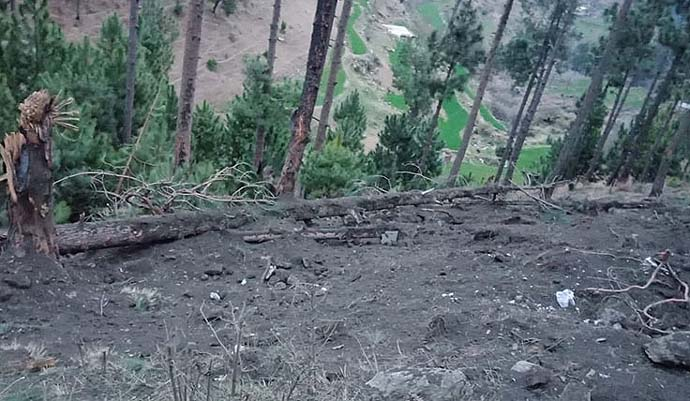
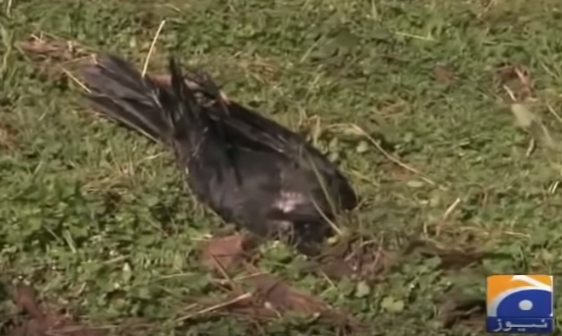
The world held clenched their teeth as they waited for Pakistan's response. Pakistan had already threatened retaliation on place and time of their choosing.
(4/15)
(4/15)
On the early morning of February 27th Pakistan decided to retaliate, for this purpose a large strike package of Mirage 5s armed with H4 SOWs.
The second strike package consisted of JF17s armed with GIDS Takbir Range Extension Kit fitted bombs.
(5/15)

The second strike package consisted of JF17s armed with GIDS Takbir Range Extension Kit fitted bombs.
(5/15)
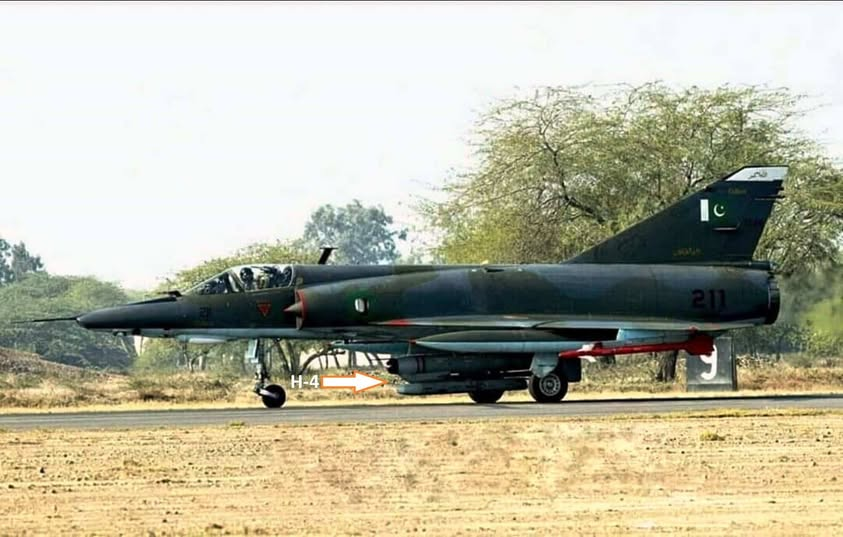

Both of these strike packages were escorted by JF17s armed with Air to Air weapons (SD10s, PL5E) as well as Jamming pods(KG600 SPJ).
These aircraft were further supported by Dassault DA20E Falcon EW Aircraft.
There were AEW&Cs airborne too, the strike package was supported by Erieye AEW&C.
(6/15)


These aircraft were further supported by Dassault DA20E Falcon EW Aircraft.
There were AEW&Cs airborne too, the strike package was supported by Erieye AEW&C.
(6/15)
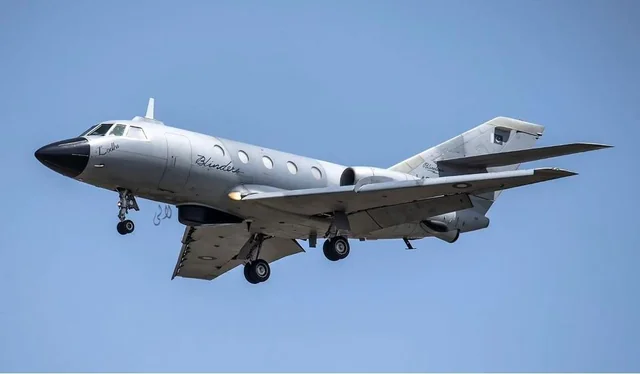
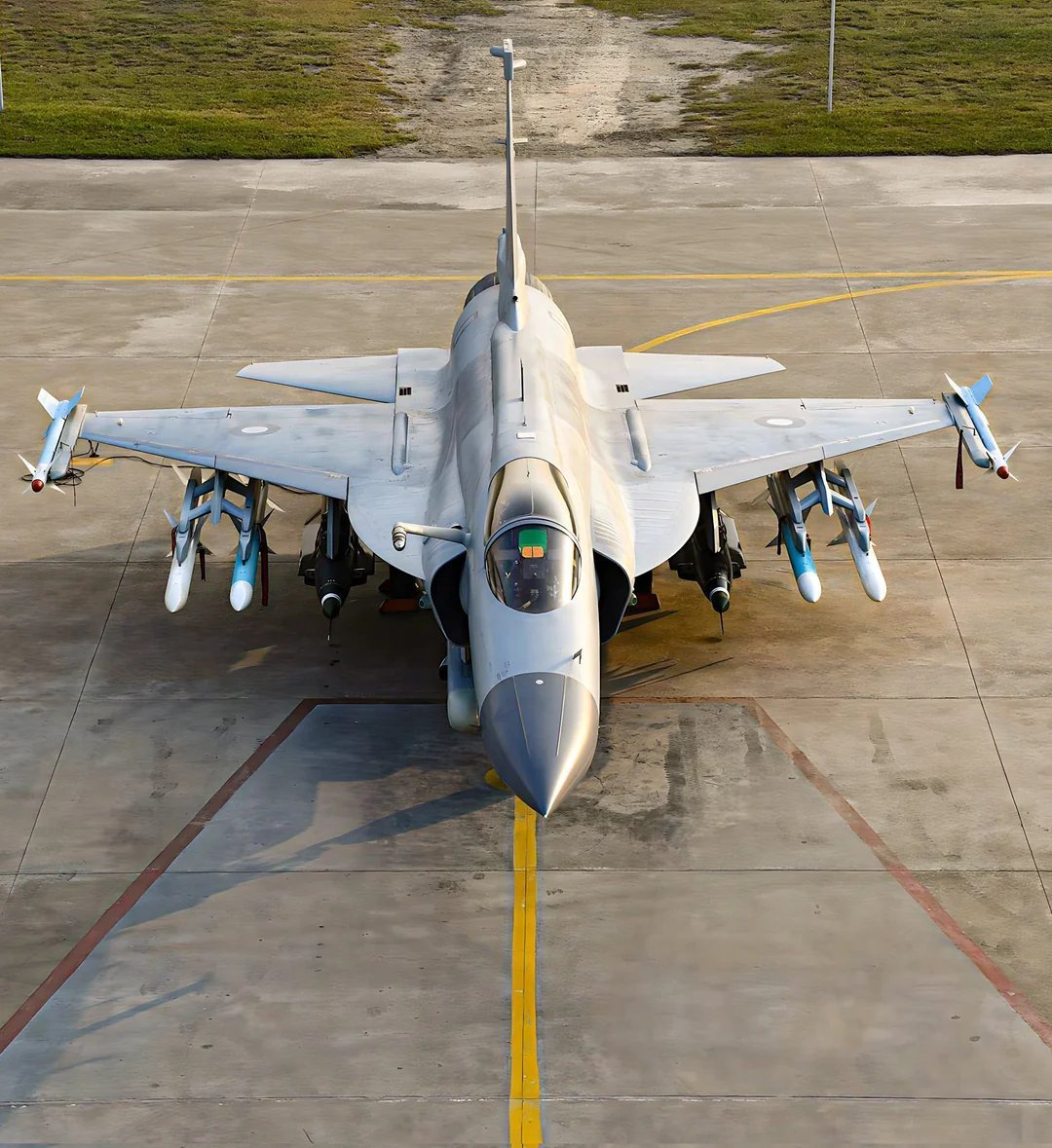
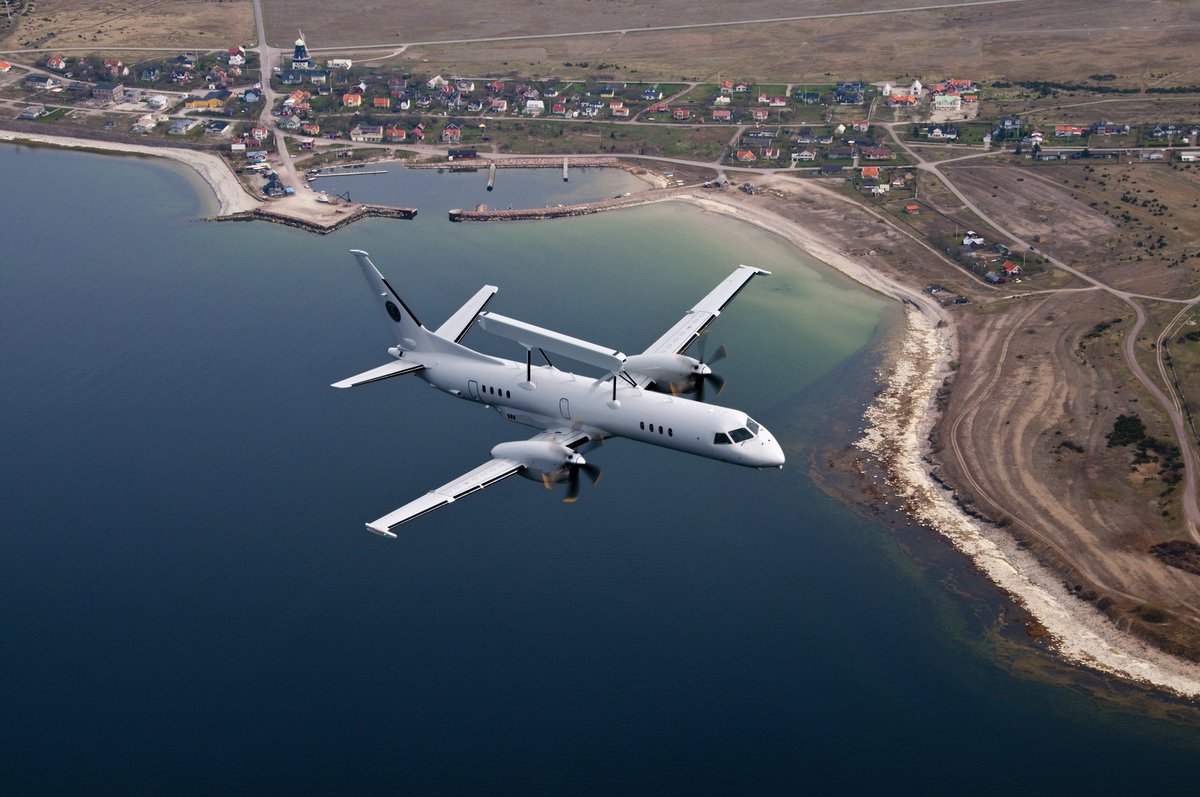
The targets were pre decided, targets of significant military importance.
HQs, ammo dumps and other such high value targets. Interestingly all of these strikes were carried out from inside the LOC, using stand off weapons ranged 120kms and more.
(7/15)
HQs, ammo dumps and other such high value targets. Interestingly all of these strikes were carried out from inside the LOC, using stand off weapons ranged 120kms and more.
(7/15)
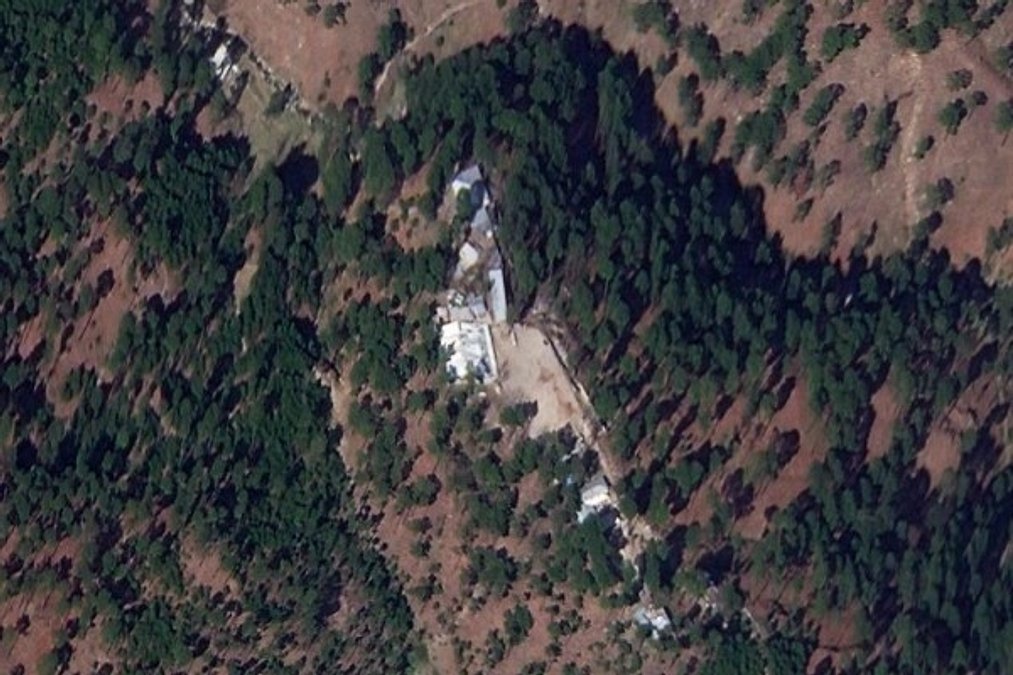
Indian air force was caught by surprise, in a hurry they launched interceptor aircraft, Mirage 2Ks, SU30s and even MiG21s were launched, the M2Ks turned back citing issues with their radars.
(8/15)

(8/15)
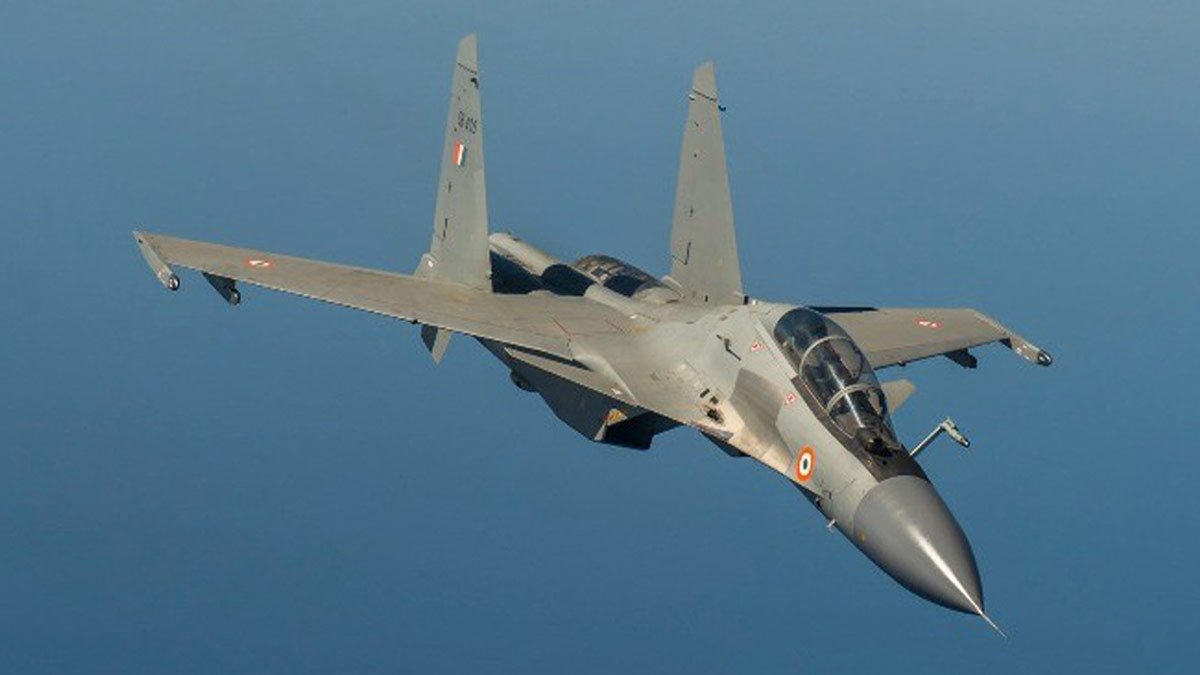
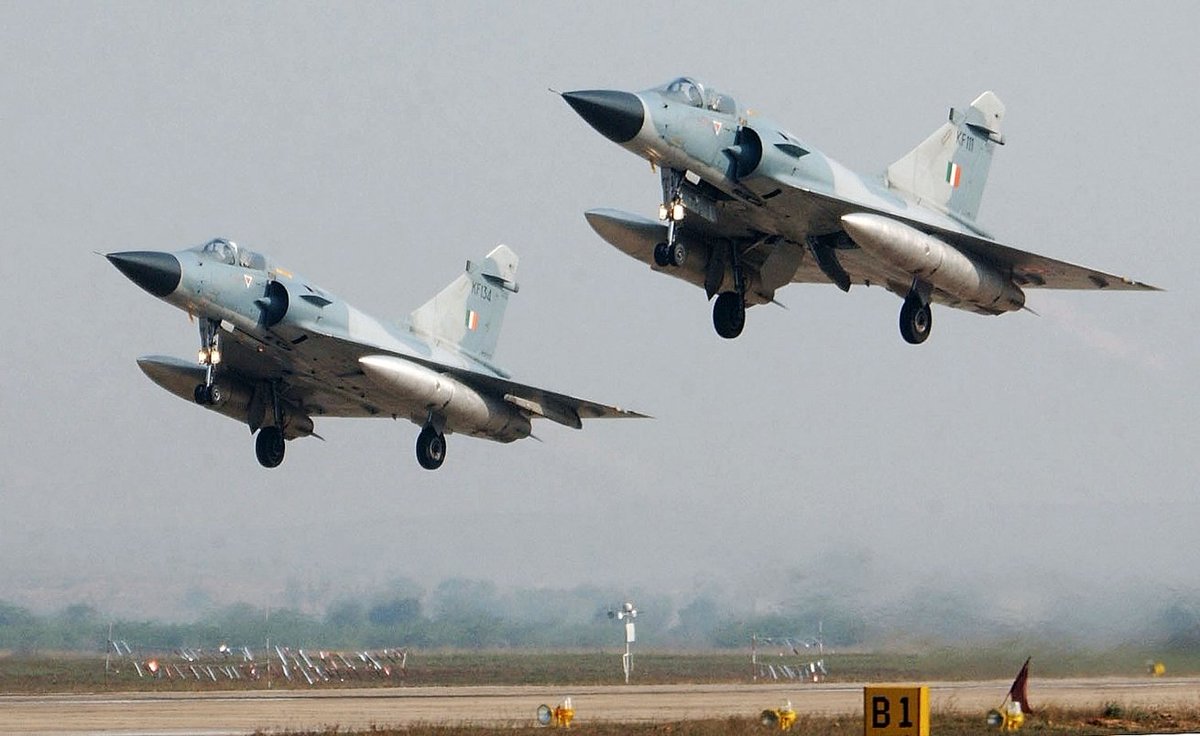
As the strike package safely returned, PAF fighters acted as bait, luring IAF aircraft into a predesignated kill box where F-16s armed with AIM120C5s and AIM9Ls were waiting. A PAF F-16B engaged an IAF Su-30MKI with an AIM-120 AMRAAM.
While India denied the loss, PAF presented radar evidence of the engagement.
(9/15)

While India denied the loss, PAF presented radar evidence of the engagement.
(9/15)
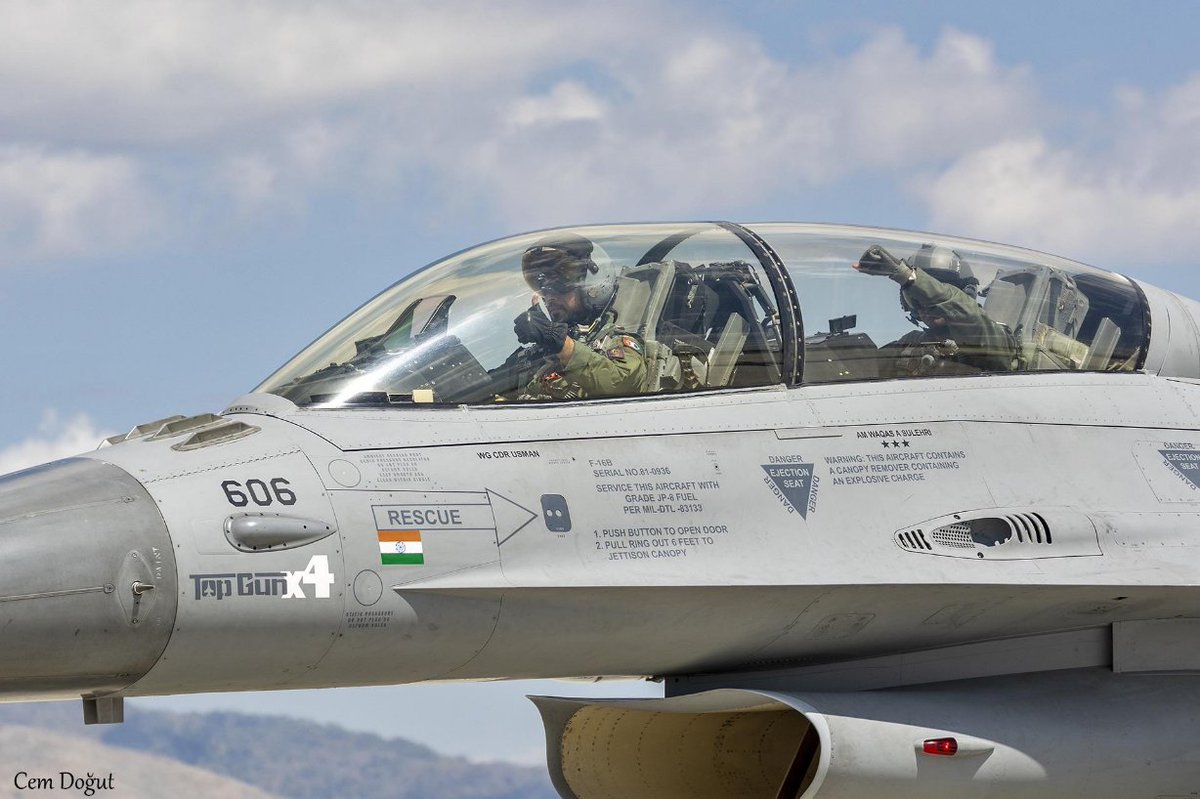
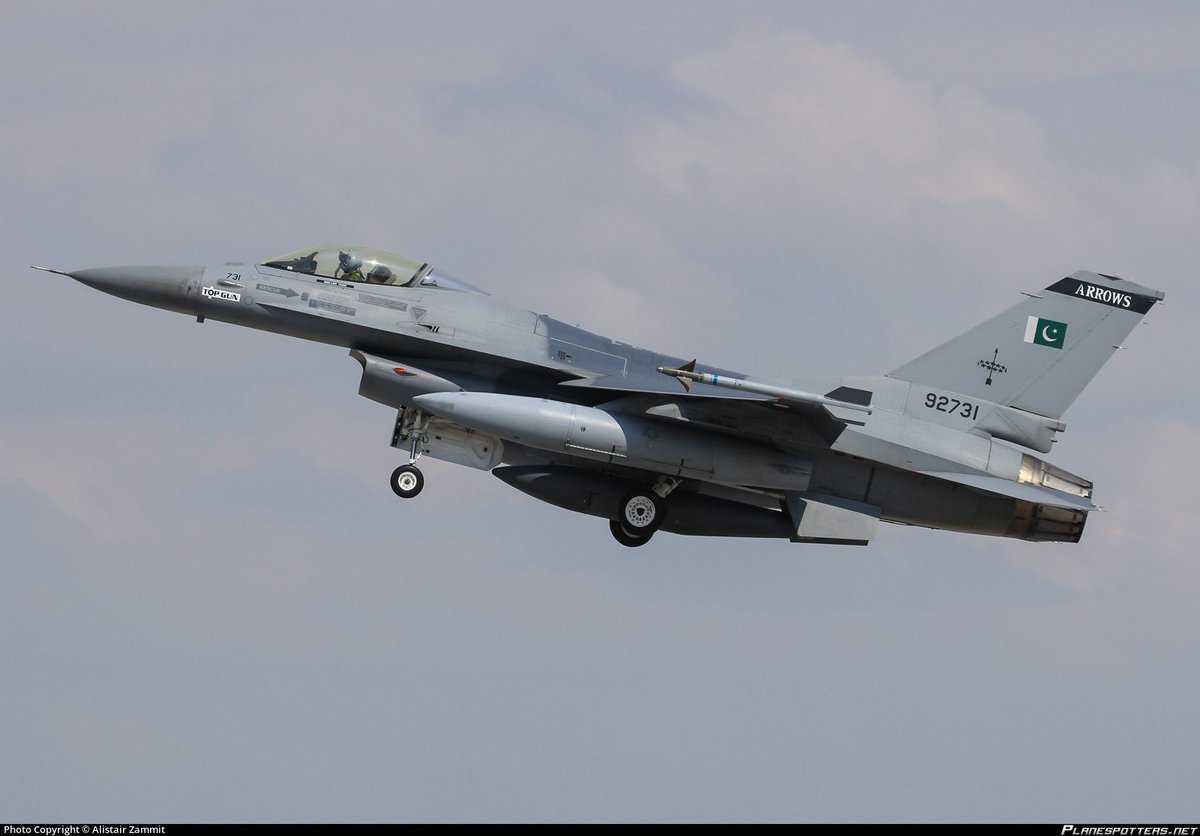
A lone MiG21 in pursuit of a kill with its communication jammed ventured into Pakistani airspace.
The MiG21 was flying blind, and in a fray of electronic warfare and fog of war, he was hit by an AIM120 fired from another F16.
He managed to eject and landed within Pakistani Administered Kashmir from where he was taken as POW.
(10/15)

The MiG21 was flying blind, and in a fray of electronic warfare and fog of war, he was hit by an AIM120 fired from another F16.
He managed to eject and landed within Pakistani Administered Kashmir from where he was taken as POW.
(10/15)
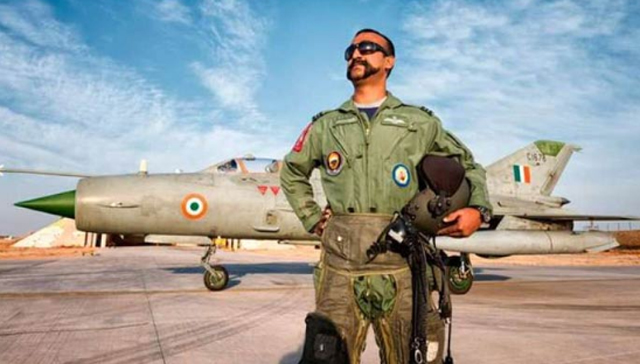
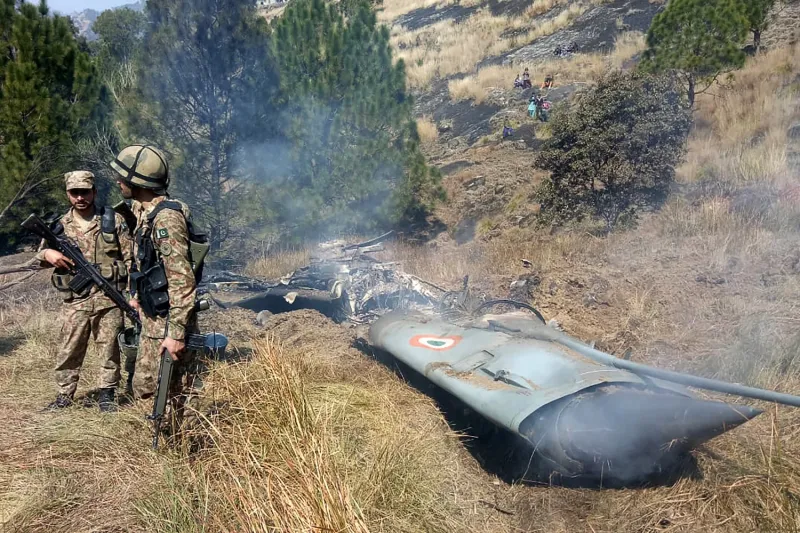
In the Electronic fray an IAF Spyder Surface to air battery locked onto something it taught was an F16 and fired hastily.
Later it was found that the F16 turned out to be an IAF Mi17 on CSAR trying to find downed IAF pilot (WC Abhinandan). Later it was found that the transponder was jammed by PAF's EW aircraft.
(11/15)

Later it was found that the F16 turned out to be an IAF Mi17 on CSAR trying to find downed IAF pilot (WC Abhinandan). Later it was found that the transponder was jammed by PAF's EW aircraft.
(11/15)
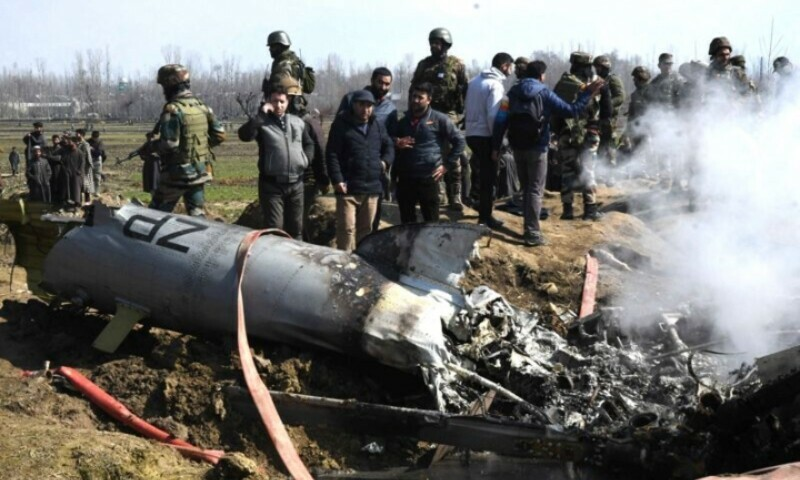
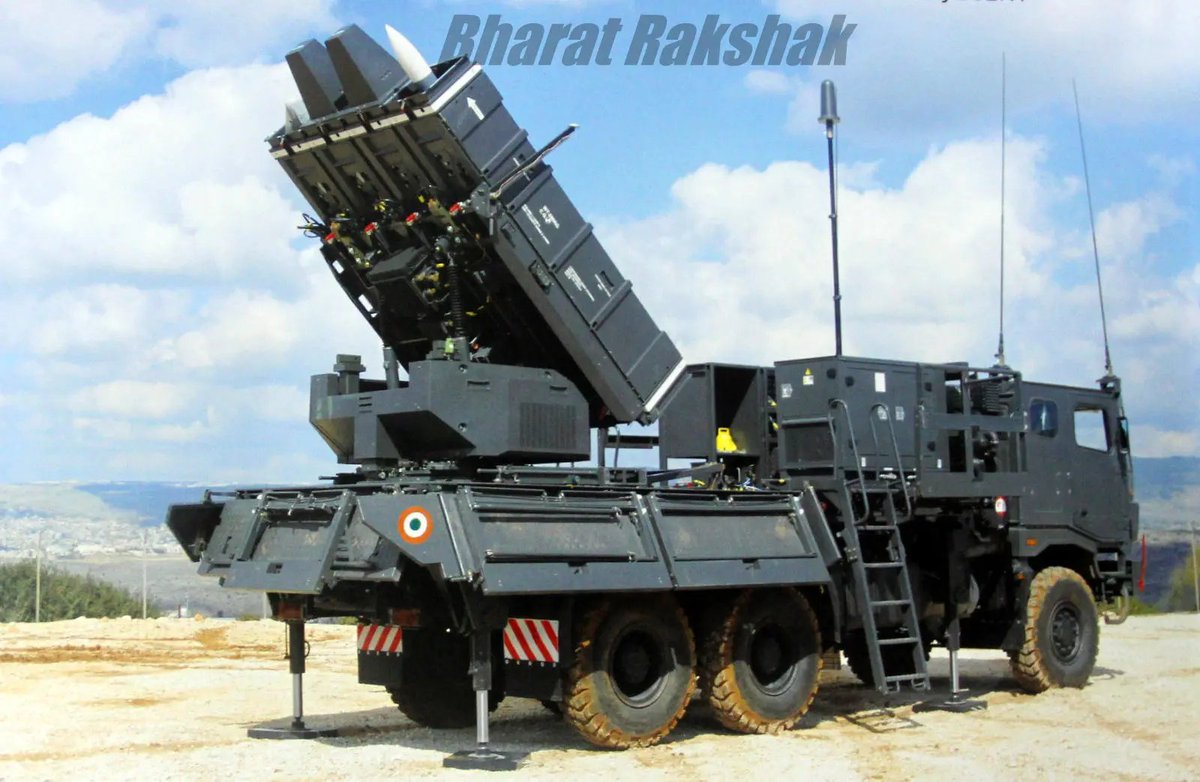
Indian air force claimed that Abhinandan had shot down an F16 a claim that has been widely debunked by the international community.
The only physical 'evidence' they had to back their claim was a piece of the AIM120 AMRAAM that came from the SU30MKI that the PAF had targeted.
(12/15)
The only physical 'evidence' they had to back their claim was a piece of the AIM120 AMRAAM that came from the SU30MKI that the PAF had targeted.
(12/15)

Pakistan retorted by showing the wreckage of the IAF MiG-21 which had all its missiles intact.
Although there was no physical evidence of the IAF SU30MKI being shot down apart from radar footage but the most widely accepted theory is that it was hit and it staggered back to base and was written off and that's where the piece of the AIM120 came from.
(13/15)
Although there was no physical evidence of the IAF SU30MKI being shot down apart from radar footage but the most widely accepted theory is that it was hit and it staggered back to base and was written off and that's where the piece of the AIM120 came from.
(13/15)
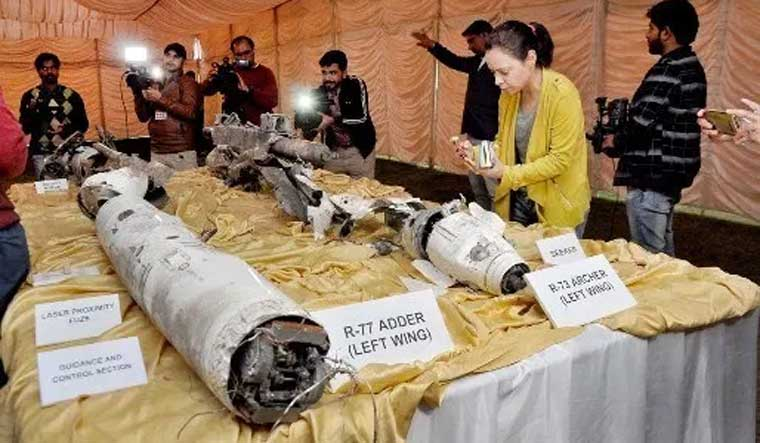
In the beginning IAF and the Indian govt even said that No aircraft had been shot down but as the fog of war settled the score card was set, it was that IAF lost 2 (Mi17 and MiG21) aircraft while PAF lost none.
Abhinandan was later repatriated to India via the Wahgah border. He was then decorated as a war hero by IAF. Even after 6 years Abhinandan himself hasn't claimed a kill it is only some Indians that claim that kill.
IAF fast tracked acquisition of Rafale aircraft after the incident with their higher command and their civilian leadership citing that things would have been different if IAF had Rafales.
(14/N)
Abhinandan was later repatriated to India via the Wahgah border. He was then decorated as a war hero by IAF. Even after 6 years Abhinandan himself hasn't claimed a kill it is only some Indians that claim that kill.
IAF fast tracked acquisition of Rafale aircraft after the incident with their higher command and their civilian leadership citing that things would have been different if IAF had Rafales.
(14/N)
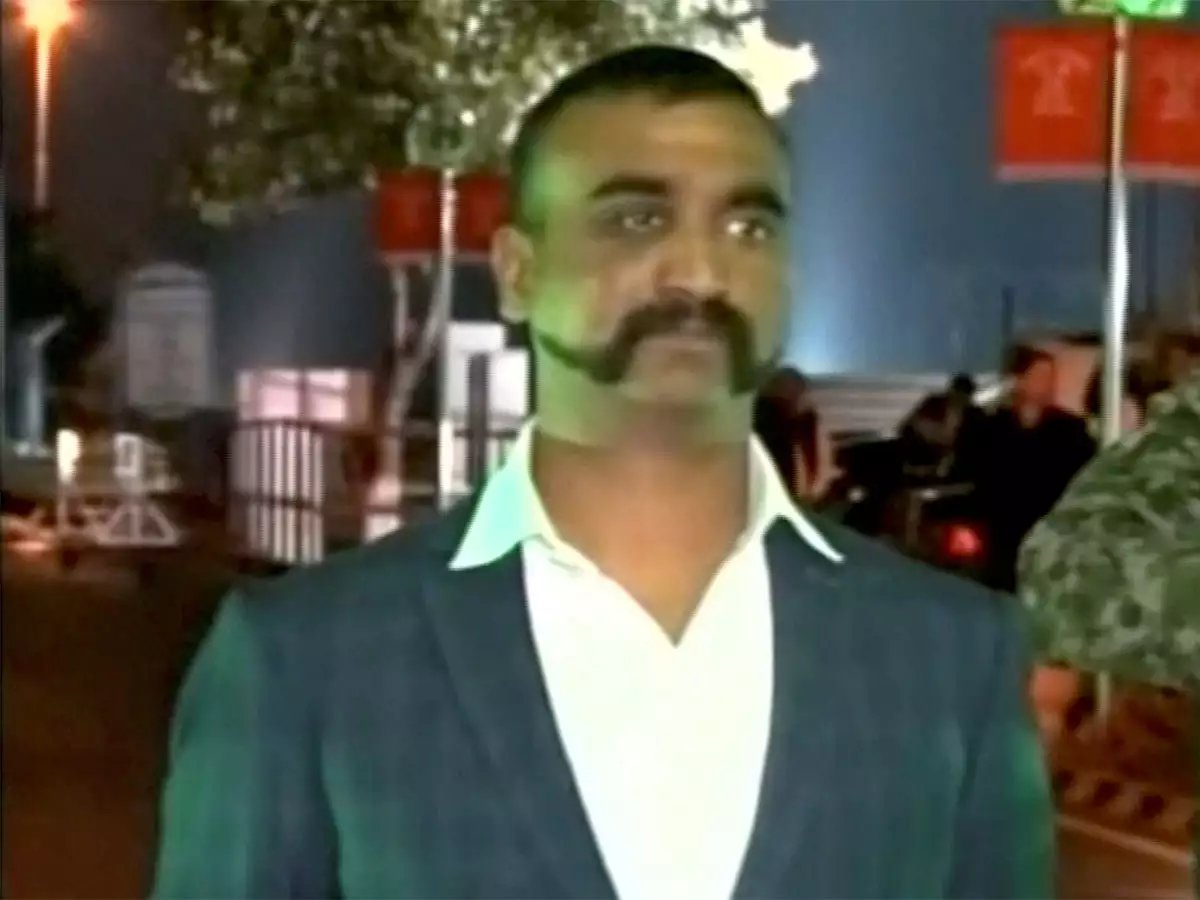
Here are some of the weapons used
>H-4 SOW: Standoff weapon with electro-optical targeting and human-in-the-loop guidance. It uses a rocket booster for extended range, reaching over 100 km.
>GIDS Takbir: Precision guidance kit for MK-83/84 bombs, extending their range to 100 km with 3m accuracy.
>AIM-120C5 & SD-10: Beyond Visual Range (BVR) missiles, radar-guided for long-range air combat.
>AIM-9L & PL-5E: Within Visual Range (WVR) missiles, infrared-guided for short-range dogfights.
>SPICE-2000: Israeli precision-guided bomb, GPS/EO-guided, 120 km range, 2000 lb warhead.
>KG-600 SPJ: Chinese jamming pod, disrupts enemy radars & communications.
>Spyder SAM: Israeli short-to-medium range surface-to-air missile used in IAF’s failed friendly fire incident.
>H-4 SOW: Standoff weapon with electro-optical targeting and human-in-the-loop guidance. It uses a rocket booster for extended range, reaching over 100 km.
>GIDS Takbir: Precision guidance kit for MK-83/84 bombs, extending their range to 100 km with 3m accuracy.
>AIM-120C5 & SD-10: Beyond Visual Range (BVR) missiles, radar-guided for long-range air combat.
>AIM-9L & PL-5E: Within Visual Range (WVR) missiles, infrared-guided for short-range dogfights.
>SPICE-2000: Israeli precision-guided bomb, GPS/EO-guided, 120 km range, 2000 lb warhead.
>KG-600 SPJ: Chinese jamming pod, disrupts enemy radars & communications.
>Spyder SAM: Israeli short-to-medium range surface-to-air missile used in IAF’s failed friendly fire incident.
@threadreaderapp unroll please.
• • •
Missing some Tweet in this thread? You can try to
force a refresh


































